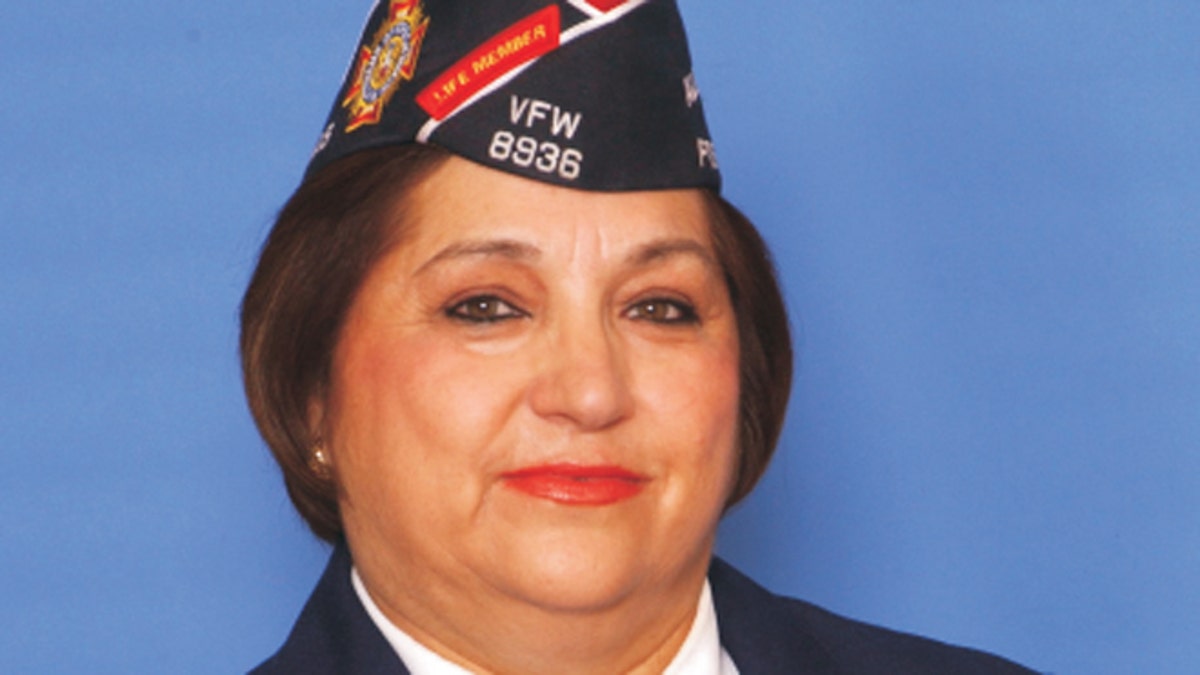
Meet the first-ever female state commander of the largest Veterans of Foreign Wars department in the country: Sylvia Sanchez.
Sanchez took the position on June 15 at the state convention in Corpus Christi for the Department of Texas VFW, which oversees 352 posts in 24 districts of the Lone Star State. She was the first woman to be elected as state commander since the division’s inception 93 years ago, but she said she doesn’t think it’s the most important aspect of her election.
“I don’t see myself as a female,” Sanchez remembered telling a veteran years ago who suggested Texas was ready for a female commander. “I see myself as an individual who is willing to give my life for my country... Yes, I’m a female, but in our VFW, there is no gender. We’re comrades.”
Sanchez, 66, said that she set the goal of becoming state commander several years ago, and quickly got on track to achieving it once she was elected junior vice commander in 2011.
In order to become a VFW state commander, a veteran must be ready for a three-year commitment, she said. First, they are elected as junior vice commander, then promoted to senior vice commander, then finally state commander, each with year-long positions.
Sanchez said she had a motto for the year ahead: “Because we care.” She said she and her fellow board members want to do everything they can “to help our veterans, to promote for them, to advocate for them and be there if they need it.”
“I’m here because I care about our veterans,” she said.
The VFW is in place to help veterans get the attention they need, Sanchez said, in both their physical and mental health, addressing such issues as brain injury, post traumatic stress disorder, and sexual trauma.
“We’re there to work at keeping up the benefits we already have,” Sanchez said, “because [the government is] trying to take more and more away from them.”
The organization is also concerned about teaching patriotism to the nation’s youth, as well as veterans returning to the United States with no home to go to.
“It’s sad that these soldiers, these members of armed forces that valiantly went and were willing to give their lives – so many come home and are homeless because of problems mentally” she said.
As the Texas state commander, Sanchez helps about 79,000 of the 1.9 million VFW members all over the country.
Sanchez said she never imagined she would become state commander, much less enter the military, because she always wanted to be a nurse.
“My poor dog used to suffer because I’d bandage her up all the time.”
Because they were “financially disadvantaged,” Sanchez said her family could only pay for her first year of nursing school. In order to pay for the rest, she joined the Army in 1967 and entered the Army’s student nurse program.
Her military experience includes serving as the operating room supervisor for the 217th evacuation hospital in Desert Storm and deputy commander of the Health Services Directorate of the Texas Army National Guard, until she retired in 2000. She also retired as a colonel in the U.S. Army Nurse Corp, where she served for 30 years.
She has since put her 42 years as a registered nurse to good use by working as an operating room nurse at the Santa Rosa Medical Center and a school nurse at Gardendale Elementary School in Edgewood, Texas.
Before being elected to the junior vice commander position in 2011, Sanchez served as post commander from 1994 to 1996 at post 8936 in San Antonio, Texas and then held other district and state positions.
Sanchez said that her parents taught her to be patriotic. Her father, originally from Mexico, was a Navy man in World War II, and her mother helped the war effort by welding ships in the Houston Ship Channel.
Henry Gonzales, Sanchez’s husband who belongs to post 9603 after serving in the Korean War, said he is very proud of his wife.
“I’m very proud of her,” Gonzales, 84, said. “She really will go out of her way if it means helping a veteran who has interrupted their life to go into the military, especially the ones that have been wounded.”
Sanchez said she recognizes she’s making history.
“Of course, it’s an honor to have been elected,” she said. “In a way, it’s historical.”








































